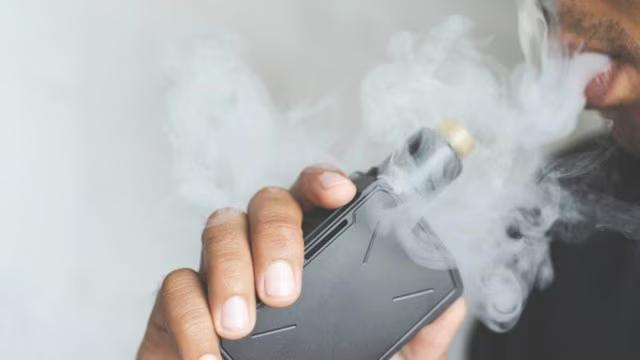
Singapore to Treat Vaping as a Drug Offence, May Impose Jail: PM
In a shocking move, Singapore’s Prime Minister Lawrence Wong has announced that the country will treat vaping as a drug abuse issue rather than tobacco use, with stricter penalties and potential jail sentences for those found guilty. This decision comes as a response to the growing concerns over the increasing popularity of vaping products, particularly among the youth.
According to a recent report by the World Health Organization (WHO), the use of e-cigarettes has been rising globally, with an estimated 7 million youth under the age of 18 using e-cigarettes in 2020 alone. The WHO has warned that vaping products are often marketed with appealing flavors and packaging that appeal to young people, increasing the risk of addiction.
Singapore’s Prime Minister Lawrence Wong has echoed these concerns, stating that vaping is an “emerging public health threat” that requires urgent action. In a recent statement, PM Wong emphasized that the government is committed to taking a tough stance on the sale and use of vaping products, particularly those that are mixed with harmful substances.
Under the new legislation, those found guilty of selling vapes mixed with harmful substances could face jail sentences. The government is also planning to increase awareness and education campaigns to discourage the use of vaping products, especially among young people.
However, the government is also willing to provide rehabilitation services to those who are addicted to vaping products. PM Wong acknowledged that many people who use vaping products may be unaware of the risks involved and that the government is committed to helping them overcome their addiction.
The decision to treat vaping as a drug offence is not unprecedented. Several countries, including the United States, Canada, and Australia, have already taken similar measures to regulate the sale and use of vaping products. However, Singapore’s approach is unique in that it will impose stricter penalties, including jail sentences, for those found guilty of selling or using vaping products.
The move has been welcomed by health advocates, who have long been calling for stricter regulations on the vaping industry. “We welcome the government’s decision to treat vaping as a drug offence,” said Dr. Tan Yew Chong, a leading health expert in Singapore. “Vaping products are often marketed as a safe alternative to tobacco, but the reality is that they are highly addictive and can lead to serious health problems, including lung damage and even death.”
However, some critics have raised concerns over the government’s approach, arguing that the stricter penalties may not be effective in addressing the root causes of the problem. “While I understand the government’s concerns over vaping, I believe that punishing people for using vaping products is not the solution,” said Singapore-based lawyer, Lim Chin Siong. “Instead, we need to focus on education and awareness campaigns to discourage the use of vaping products and provide support services to those who are addicted.”
The government has also faced criticism over its handling of the vaping crisis, with some critics arguing that the government has been slow to respond to the growing concerns over the use of vaping products. “The government has been aware of the risks associated with vaping for several years, but they have been slow to take action,” said opposition MP, Pritam Singh. “It’s only now that they are taking a tough stance on vaping, but it’s too little, too late.”
Despite the criticism, the government remains committed to its new policy, which it believes will help to protect the health and well-being of Singaporeans. “We are committed to taking a tough stance on vaping and ensuring that our citizens are protected from the risks associated with these products,” said PM Wong. “We will work closely with health experts, educators, and law enforcement agencies to ensure that our policy is effective and that our citizens are aware of the risks involved.”
In conclusion, Singapore’s decision to treat vaping as a drug offence is a significant development in the country’s efforts to address the growing concerns over the use of vaping products. While the government’s approach has been welcomed by health advocates, some critics have raised concerns over the stricter penalties and the government’s handling of the vaping crisis. As the government moves forward with its new policy, it will be important to monitor its effectiveness and ensure that it is truly effective in protecting the health and well-being of Singaporeans.



